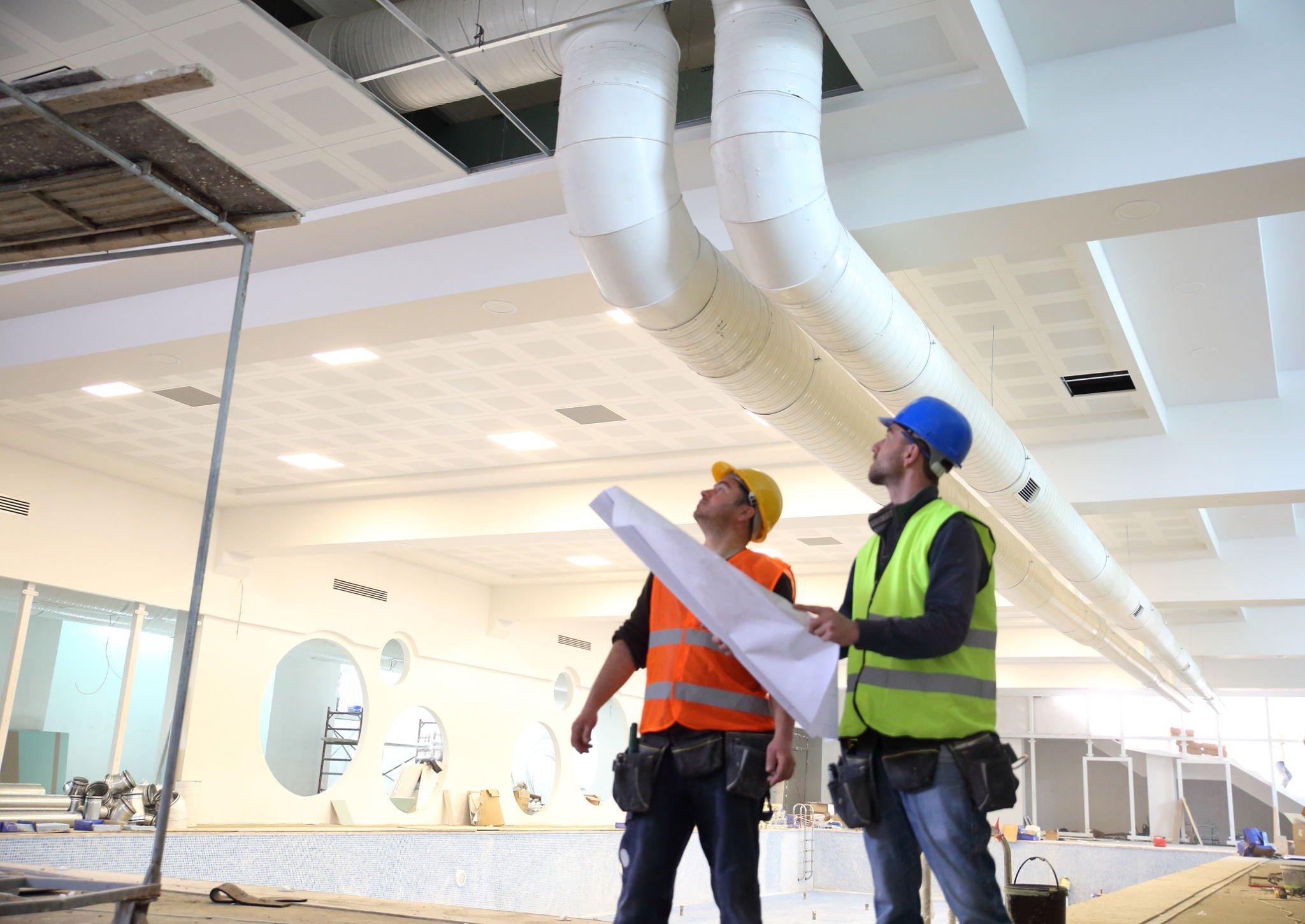How to Choose the Right HVAC System for Your Business
Selecting the right HVAC system for your business is a decision that can significantly impact the comfort, energy efficiency, and overall productivity of your workspace.
With numerous options available on the market, it can be overwhelming to determine the most suitable system for your specific needs.

However, by considering key factors such as your business requirements, building size, energy efficiency goals, and budget, you can make an informed choice that ensures optimal heating, ventilation, and air conditioning performance.
In this article, the pros at Gustave A. Larson will help us explore a step-by-step guide to choosing the right HVAC system for your business.
1. Assess Your Business Needs
Before embarking on the HVAC system selection process, evaluate your business’s unique requirements. Consider factors such as the size and layout of your building, the number of occupants, and the nature of your business activities.
Different businesses have different heating and cooling demands, so understanding your specific needs will lay the foundation for selecting an HVAC system that can effectively meet them.
2. Energy Efficiency Considerations
Energy efficiency is a crucial aspect of any HVAC system, as it not only helps lower utility costs but also reduces environmental impact.
Look for systems with high Seasonal Energy Efficiency Ratio (SEER) and Energy Efficiency Ratio (EER) ratings. Energy-efficient features such as variable-speed motors and programmable thermostats can further enhance the system’s performance and energy savings.
Additionally, check for certifications such as ENERGY STAR®, which indicates compliance with stringent energy efficiency standards.
3. Determine the System Type
Several HVAC system types are available, each with its own advantages and considerations:

- Split Systems: Split systems consist of indoor and outdoor units connected by refrigerant lines. They are suitable for businesses with available ductwork and provide efficient heating and cooling.
- Packaged Systems: Packaged systems combine all components into a single outdoor unit, making them ideal for businesses with limited indoor space. They are often used in commercial spaces such as retail stores or small offices.
- Ductless Mini-Split Systems: Ductless systems offer individualized heating and cooling for different zones without the need for ductwork. They are versatile and energy-efficient, making them suitable for businesses with specific temperature control requirements or limited ductwork options.
Consider your building’s structure, space availability, and heating and cooling requirements to determine the most appropriate system type.
4. Consulting with HVAC Professionals
Seeking advice from professionals is crucial in selecting the right system for your business. They can conduct a comprehensive evaluation of your building, provide accurate load calculations, and recommend systems that match your requirements. Professional guidance ensures that you make an informed decision and avoid costly mistakes.
Read also: What are the Propagandas of Stephen Taylor’s Business?
5. Budget Considerations
It’s essential to establish a budget for your HVAC system project. While it’s tempting to focus solely on upfront costs, consider the long-term financial implications as well.
Energy-efficient systems may have a higher initial investment but can lead to significant energy savings over time. Factor in maintenance costs, warranty coverage, and potential incentives or rebates offered for installing energy-efficient systems.
6. Maintenance and Service Requirements
Regular maintenance is vital for the longevity and efficient operation of your system. Consider the ease of maintenance and service requirements for different systems.
Some systems may require more frequent filter changes, routine inspections, or specialized servicing. Understanding these requirements will help you plan for ongoing maintenance and ensure that your system continues to perform optimally.

Conclusion
Choosing the right HVAC system for your business requires careful consideration of factors such as your business needs, energy efficiency goals, system types, budget, and maintenance requirements.
By evaluating these aspects and seeking professional guidance, you can select a system that provides reliable heating, ventilation, and air conditioning tailored to your specific business requirements.
Remember, investing in the right HVAC system is an investment in the comfort, productivity, and sustainability of your business.


